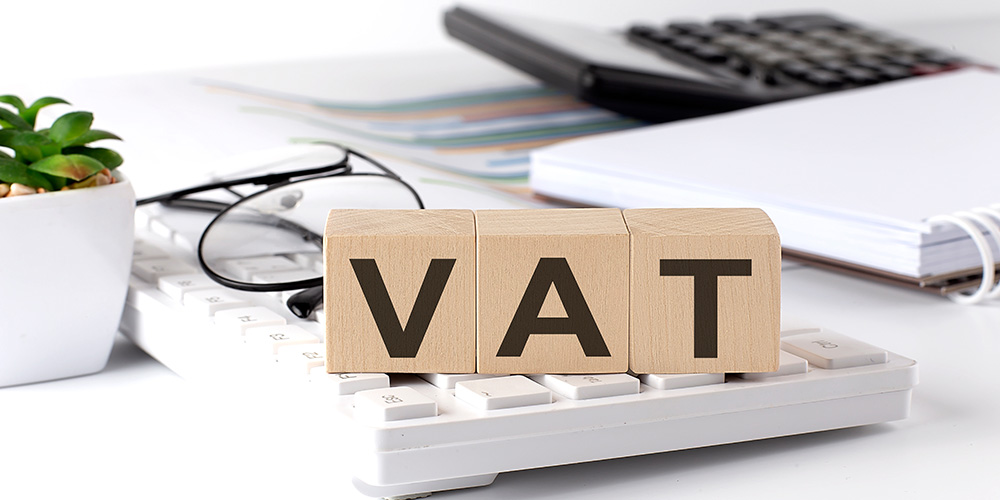If you are new to contracting or considering setting up a limited company, you may…

What is the penalty point system for late VAT returns and payments?
Since HMRC introduced the new VAT penalty regime in January 2023, we’ve observed an increase in the strict enforcement of VAT return deadlines and payments, as businesses now face immediate consequences for late submissions. Our latest article provides an overview of the penalty point system for late VAT returns and payments, providing essential insights to help you navigate the changes effectively.
What is a VAT return, and when is the deadline?
A VAT return is a form you submit to HMRC to let them know how much VAT you’ve paid to other businesses and how much VAT you’ve charged. Most companies need to submit quarterly VAT returns every 3 months at the end of what’s known as your accounting period. Even if you have no VAT to pay or reclaim, you must submit a VAT return if you’ve registered for VAT. The deadline for submitting your VAT return online is usually one calendar month and 7 days after the end of your accounting period. You must also pay VAT to HMRC by this deadline.
Late VAT returns and payments
If you miss the deadline for submitting a return, HMRC will send you a ‘VAT notice of assessment of tax’ letting you know how much tax they think you owe. Depending on which account period it’s for, the amount you owe will be worked out differently, and you may need to pay a penalty or surcharge for late submissions or payments.
If your accounting period started on or after the 1st January 2023
You’ll get separate penalties for paying late and submitting your return late.
Late submission of VAT returns and the point system
You’ll receive a penalty point for each VAT return you send late, including nil returns when you have nothing to declare. You’ll get a £200 penalty once you reach the penalty point threshold. The threshold is set by your accounting period and is the maximum points you can receive:
| Accounting period | Penalty points threshold |
| Annually | 2 |
| Quarterly | 4 |
| Monthly | 5 |
You’ll get a further £200 penalty for each subsequent late submission while you’re at the threshold.
Removing late submission points
To avoid further £200 penalties, if you’ve reached the threshold for late submission penalty points, you’ll need to take action to remove them. You can check how many penalty points you have in your online account.
Individual points will expire automatically if you have not reached the threshold for penalty points for your accounting period. When penalty points expire depends on the date your return was due. Please visit the government’s website for more information on when penalty points expire.
To remove all penalty points from your account, complete a period of compliance by submitting all returns by the deadline and submitting all outstanding returns for the previous 24 months.
Late VAT payments
You could receive a penalty if you pay late:
- Following an amendment to a correction or return
- On your VAT return
- From a VAT assessment HMRC issued for another reason
- From a VAT assessment HMRC issued when you did not submit your return
How much you pay will depend on how late your payment is. When your payment is 31 or more days overdue, your first late payment penalty increases, and you get a second late payment penalty.
| First late payment penalty | Second late payment penalty | |
| Payment up to 15 days overdue | None | None |
| Payment between 16 and 30 days overdue | Calculated at 2% on the VAT you owe at day 15 | None |
| Payment 31 days or more overdue | Calculated at:
· 2% of what was outstanding at day 15 · Plus 2% of what is still outstanding at day 30 |
Calculated at:
· A daily rate of 4% per year on the outstanding balance · Charged every day from day 31 until the outstanding balance is paid in full |
You’ll also be charged late payment interest from the first day your payment is overdue until you pay in full. You should pay in full or ask for a Time to Pay arrangement to avoid further penalties.
If your accounting period started on or before the 31st December 2022
If you’re late submitting a VAT return or payment, HMRC will record a ‘default’ on your account and may put you in a ‘surcharge period’ of 12 months. You do not pay a surcharge the first time you default. However, if you receive another default during the 12 months, you may have to pay an extra amount on top of the VAT you owe.
A surcharge period
If your turnover is £150,000 or more, you will be subject to a 12-month surcharge period if you are late submitting a payment.
If your turnover is under £150,000 and you submit a late payment twice in 12 months, you will enter a 12-month surcharge period.
You submit a return or payment late during a surcharge period
If you’re late submitting a return, your 12-month surcharge period will restart. If you’re late submitting a payment, your 12-month surcharge will restart, and you might need to pay a surcharge.
How much will you pay?
The surcharge is calculated on the due date and is a percentage of the outstanding VAT for the period in default. Please note that there is no penalty for a late nil return. If you default within a surcharge period, you may be charged the following:
| Defaults within 12 months | Surcharge if annual turnover is less than £150,000 | Surcharge if annual turnover is £150,000 or more |
| 2nd | No surcharge | 2% (no surcharge if this is less than £400) |
| 3rd | 2% (no surcharge if this is less than £400) | 5% (no surcharge if this is less than £400) |
| 4th | 5% (no surcharge if this is less than £400) | 10% or £30 (whichever is more) |
| 5th | 10% or £30 (whichever is more) | 15% or £30 (whichever is more) |
| 6 or more | 15% or £30 (whichever is more) | 15% or £30 (whichever is more) |
Arrange a consultation to find out more about our dedicated contractor accountancy service
Are you looking for a dedicated contractor accountant? Since 1998, Churchill Knight & Associates Ltd has specialised in providing a dedicated contractor accountancy service and accountancy services for SMEs and landlords.
Churchill Knight & Associates Ltd is accredited by the FCSA. The FCSA is the UK’s leading professional body committed to ensuring the supply chain of temporary workers is compliant with HMRC’s rules and regulations. To obtain accreditation, we’ve proven we adhere to the highest compliance standards outlined in the FCSA’s Codes of Compliance.
If you are considering setting up a limited company or would like to discuss our accountancy services, please call our expert Sales Consultants on 01707 871622 or request a tailored quote, and a member of the team will contact you.


Comments (0)